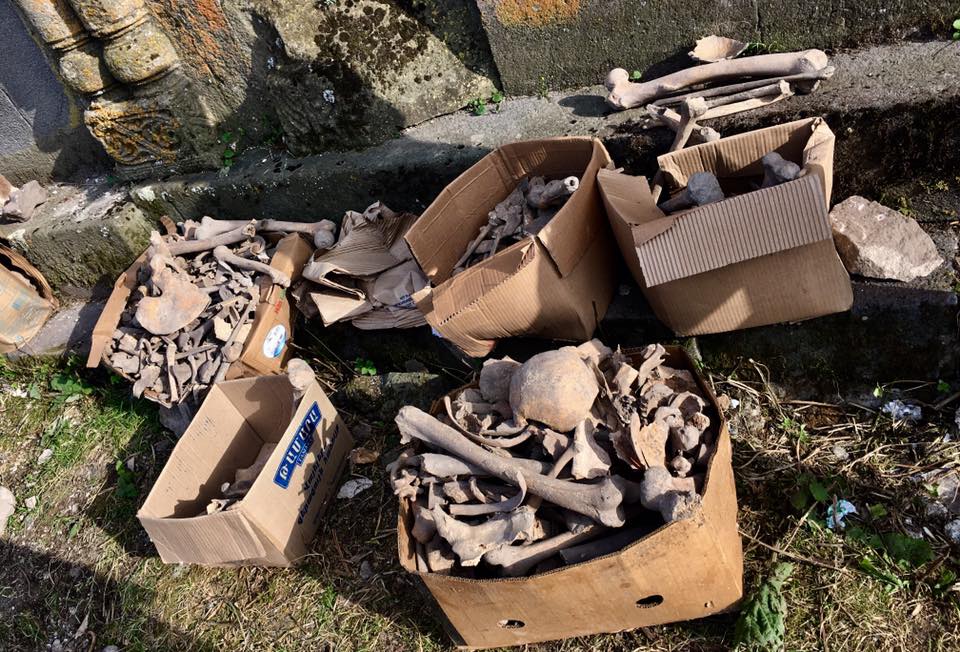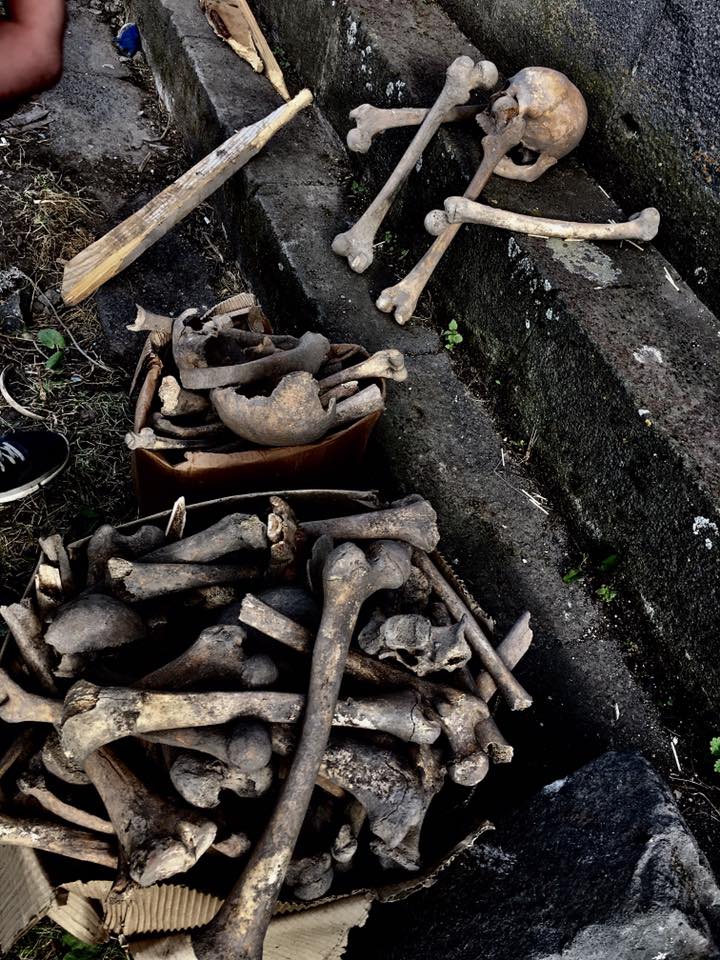




 |
 |
 |
 |
 |
VIP Forums Muzblog Chat Games Gallery. Ôîðóì, ìóçäíåâíèêè, ÷àò, èãðû, ãàëëåðåÿ. |
||||
|
||||||||
| Diaspora News and events in Armenian and other diasporas. |
Gumburdo, Javakhk: Cultural Genocide Continues |
LinkBack | Thread Tools | Display Modes |
|
|
#1 (permalink) |
|
Top VIP VIP Ultra Club
Join Date: Jan 1970
Posts: 12,055
Rep Power: 69
 |
Special to the Armenian Weekly
Javakhk, a Place Dear to the Heart and Truly Armenian… Yet Repeatedly Treated Unjustly It was just two years ago that I realized how harsh the realities of Javakhk-Armenians are. And also for diasporans who visit, and Armenian citizens who attempt to cross the border into our rightful lands. Ultimately, the situation is most unjust for those who still live on our historic lands of Javakhk. Georgia, a critical neighbor bordering Armenia, is financially and politically fueled by Turkey and Azerbaijan; therefore, discrimination toward Armenians continues to this day. Unemployment is rampant; gas, power, and water supplies are not commonly allocated to Armenian-populated regions; road are in disrepair; educational materials and Armenian schools have been destroyed; medical care is not properly provided; and mistrust on the part of government authorities is routine. But, despite all those challenges, the people of Javakhk continue to proudly preserve the spirit of the Armenian people and live on our rightful lands. Javakhk is the only historically Armenian land, part of Historic Armenia, still predominantly inhabited by Armenians yet governed by foreign rule. It is now an Armenian region in the southern part of the Republic of Georgia. Continually populated by Armenians, it endured many invasions for hundreds of years—Arabs, Seljuks, Mongols, Ottomans, Russians, Persians—but always remained Armenian, with periods of self-rule. During the Armenian Genocide, Armenian refugees from Ardahan, Erzurum, and Basen sought refuge in the districts of Akhaltskha and Akhalkalak, creating over 50 new villages. When the Republic of Armenia was founded in 1918, a war was fought with Georgia that resulted in Armenians taking control over Lori while the Georgians gained Javakhk. Under Soviet rule, Armenians petitioned to secede and join Armenia, but they were ignored by the Soviet authorities. To this day, an estimated 200,000 Armenians live in Javakhk. For the last three summers, I had the opportunity to help organize and participate in Camp Javakhk—a program organized by the Armenian Relief Society (ARS) and Armenian youth of the Eastern Region of the U.S. I have also had the pleasure to serve as an active member of the ARS Javakhk Fund. Over the last six years, we have hosted day camps for local Armenian youth in five towns, serving over 500 children each summer. Every summer, Armenian-American youth travel to Javakhk with the objective of teaching Armenian culture, dance, songs, English, basic health, arts and crafts, and so much more. As we share our education with the youth of Javakhk, we have created lifelong friendships with the local youth and community leaders. With our new friends, we have hiked through the beautiful landscapes and lit candles in our weathered churches. And through this opportunity we have witnessed first-hand the dangers and difficulties the local Armenians experience on a daily basis. One of our many excursions included the quaint and quiet town of Gumburdo (Kumurdo in Georgian), with a population of about 2,000 descendants of Western Armenian refugees, most of whom hailed from Erzerum. A town always so friendly, where our new friends would call each lady we passed on the road horkur (paternal aunt), that it truly felt as if were among our extended family; each person was ready to help with directions and join our adventure. There, we came across a church called Surb Hambardzum (Holy Ascension), believed to be both Armenian and Greek (Chalcedonian), founded by Bishop Hovhanness in 946. With no doors, ceiling, or scriptures maintained, what is left of the church is fully open to the elements, yet still frequented by the local community as it continues to stand proudly in the heart of the town. Upon walking around the church and imagining its original beauty, we noticed boxes of bones tucked to the side. The locals informed us that a few years ago Georgian authorities displaced the bodies of Armenian priests from the church’s soil in order to make room for new construction. To this day, the property remains empty, with no promise of construction in sight, leaving the bones of our ancestors out in the open, as if to taunt us.  “Upon walking around the church and imagining its original beauty, we noticed boxes of bones tucked to the side.” (Photo: Carnie Armenian) “Upon walking around the church and imagining its original beauty, we noticed boxes of bones tucked to the side.” (Photo: Carnie Armenian) “To this day, the property remains empty, with no promise of construction in sight, leaving the bones of our ancestors out in the open, as if to taunt us.” (Photo: Carnie Armenian) “To this day, the property remains empty, with no promise of construction in sight, leaving the bones of our ancestors out in the open, as if to taunt us.” (Photo: Carnie Armenian)(Video of the incident is available below. Warning: video contains scenes that some viewers may find disturbing.) Earlier this month, certainly under much pressure, the Georgian Diocese of the Armenian Apostolic Church affirmed that it had no aspirations toward the temple and that it considers it to be Georgian. A joint statement with the Georgian Patriarchy and Georgian authorities was then made, affirming readiness to “discuss the issues” and “make decisions with mutual consent,” while condemning violence. Gumburdo is one of the many beautiful Armenian villages on our territory of Javakhk that is treated unjustly. And this is just one of many stories of its kind. It is no secret that Armenians living in Javakhk are in an uphill battle to sustain their culture and to continue to inhabit our ancestral lands. Despite the difficulties imposed on them, the fight of the Armenians of Javakhk is just, and we cannot allow it to be waged alone. I hope for a day when those harsh actions are properly addressed by the local authorities, and Armenians are able to live in unity and peace on their historic land—a day when we are free of others’ hatred and our own fear. The post Gumburdo, Javakhk: Cultural Genocide Continues appeared first on The Armenian Weekly. Special to the Armenian Weekly Javakhk, a Place Dear to the Heart and Truly Armenian… Yet Repeatedly Treated Unjustly It was just two years ago that I realized how harsh the realities of Javakhk-Armenians are. And also for diasporans who visit, and Armenian citizens who attempt to cross the border into our rightful lands. Ultimately, the situation is most unjust for those who still live on our historic lands of Javakhk. Georgia, a critical neighbor bordering Armenia, is financially and politically fueled by Turkey and Azerbaijan; therefore, discrimination toward Armenians continues to this day. Surb Hambardzum Church,»Gumburdo, Javarkh (Photo: Carnie Armenian) Unemployment is rampant; gas, power, and water supplies are not commonly allocated to Armenian-populated regions; road are in disrepair; educational materials and Armenian schools have been destroyed; medical care is not properly provided; and mistrust on the part of government authorities is routine. But, despite all those challenges, the people of Javakhk continue to proudly preserve the spirit of the Armenian people and live on our rightful lands. Javakhk is the only historically Armenian land, part of Historic Armenia, still predominantly inhabited by Armenians yet governed by foreign rule. It is now an Armenian region in the southern part [...] The post Gumburdo, Javakhk: Cultural Genocide Continues appeared first on The Armenian Weekly. Special to the Armenian Weekly Javakhk, a Place Dear to the Heart and Truly Armenian… Yet Repeatedly Treated Unjustly It was just two years ago that I realized how harsh the realities of Javakhk-Armenians are. And also for diasporans who visit, and Armenian citizens who attempt to cross the border into our rightful lands. Ultimately, the situation is most unjust for those who still live on our historic lands of Javakhk. Georgia, a critical neighbor bordering Armenia, is financially and politically fueled by Turkey and Azerbaijan; therefore, discrimination toward Armenians continues to this day. Surb Hambardzum Church,»Gumburdo, Javarkh (Photo: Carnie Armenian) Unemployment is rampant; gas, power, and water supplies are not commonly allocated to Armenian-populated regions; road are in disrepair; educational materials and Armenian schools have been destroyed; medical care is not properly provided; and mistrust on the part of government authorities is routine. But, despite all those challenges, the people of Javakhk continue to proudly preserve the spirit of the Armenian people and live on our rightful lands. Javakhk is the only historically Armenian land, part of Historic Armenia, still predominantly inhabited by Armenians yet governed by foreign rule. It is now an Armenian region in the southern part [...] The post Gumburdo, Javakhk: Cultural Genocide Continues appeared first on The Armenian Weekly. [img][/img] More... |
|
|

|
|